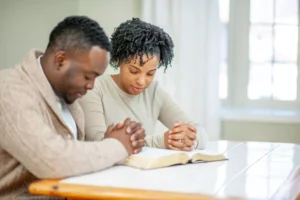Question
I am 20 years old and am dating another junior who attends my university. I started a very public courtship in my freshman year (two years ago) that was encouraged by my church and pastor as well as our young adult church group and many of our older married friends. Our parents like our relationship and have been very open and honest, critiquing when they find areas in need of improvement. We have not fallen into sexual sin, and we are regularly held accountable by our pastor as well as both of our parents. Many people have commented that we are truly a blessing to each other, and our relationship has allowed us to contribute more greatly to our church and small groups.
We have had many DTRs and discussions of the future along the way, and we decided we wanted to get married, but both of us agreed we should get married the summer after graduation. Our parents are strongly against getting married while in college, and both of us need to focus on our studies during college instead of dealing with the added stress of getting married. I have talked to my pastor about this, and he agrees that getting married in college is a very stressful transition. My boyfriend plans on proposing late next year so that we don’t have such a long engagement (we both know people try to justify a lot of things when they are engaged, and we wanted to avoid that).
Should we continue dating for the next two years while we wait for our marriage date to roll around? I don’t want to break up and then ruin our relationship so that we won’t get married, but I am also concerned about lines we might cross having to wait another two years to get married. He studied abroad this summer, and I am studying abroad in the fall so that we can spend time apart to make sure we are seeing our relationship with clearer eyes and so that we can have distance to prevent falling into sexual sin. I am still worried about the length of time we have been dating and will be dating before we get married. Any advice you can give would be greatly appreciated.
Answer
As I read your letter, I wondered what it would look like if you were free to put all the energy you’re expending on avoiding sexual sin into making a good marriage? I know I may be the only person saying this, but why not get married now?
It’s encouraging that your (and his) parents, and your pastors and mentors, are all in support of your relationship. I wonder, though, if they realize the hardship they’ve created by encouraging you to go deep in your relationship early, while pressuring you to marry late. While it’s possible to date for a long time and remain pure, it’s not easy. And often, it’s not necessary.
I realize this approach isn’t for everyone, and I know the conventional wisdom says school first, then marriage. But I read stories like yours and wonder why? Why can’t two adults study and be married at the same time?
Why do married people assume it’s just too much stress to be newly married and in college at the same time? Presumably, if you do wait and get married after graduation, then you’ll have the stress of starting a new marriage and new jobs at the same time. You’ll always have stress in life. Whenever you marry, you’ll have a season of adjusting.
As much as I can see the reasons for delaying marriage, I also see the reasons not to. Since you’re already hearing all the reasons you shouldn’t and can’t get married before graduation, I’m going to make the case for why you should, or at least could.
Consider:
- It’s cheaper for two to live as one than to pay for two of everything (apartment, car, furniture, sets of dishes, etc.).
- Marriage has a stabilizing effect, and often it’s the married students who take their studies more seriously, working at their education like a job, with no time or tolerance for partying and other time wasters.
- Lots of unmarried students work to pay their way through college. There’s no reason married students couldn’t do the same.
Other than the fact that your parents and pastors think you should wait (which I realize is not a small factor), are there other, practical reasons you can’t marry while you’re still in school?
Have you looked at your budgets to see if you’d be able to support yourselves as a married couple? How would you cover your financial obligations, where you would live, would you continue in school full time, would one or both of you work in addition to studying? Have you made a “get married before graduation” plan? Doing this would be a great place to start.
Once you’ve worked out the logistics as far as possible (because regardless of when you marry, there will always be unknowns), you could present your plan, respectfully, to your parents and ask for their input. Rather than asking for their permission, you could seek their advice and blessing.
Likely they’ll have much to say. Hopefully, some of it will be in the vein of helping you see where you need to tweak your plan to make it more workable. If you approach this as adults, hopefully they will respect you for it and take you seriously.
Many of our parents, and especially our grandparents, married young. And their marriages were, on the whole, more stable than ours. But it’s not just our grandparents who married young. More and more people are making the case that there are benefits to not delaying. Mark Regnerus talked about it in “The Case for Early Marriage” and David Lapp told his story for Boundless in “Self-Realization or Self-Gift?” Last week, Steve and I talked with Andrew Peterson for an episode of The Boundless Show. In his newest album “Counting Stars,” Andrew sings about his engagement at age 19:
Well I was 19 you were 21, the year we got engaged.
And everyone said we were much too young, but we did it anyway.
We got the rings for 40 each from the pawn shop down the road,
And we said our vows and took the leap now 15 years ago.
And we went dancing in the minefields,
We went sailing in the storms,
And it was harder than we dreamed, but I believe,
that’s what the promise is for.
There will always be challenges to making and keeping a good marriage. That’s true whatever age you wed. And age is a factor. But not the only factor. As I wrote in “Caution and Courage,”
In their concern for their children, parents don’t often realize how they can worry too much. ‘Their children are deemed incapable of bearing the weight of marriage,’ writes Joan Frawley Desmond in ‘Unmarried, Still Children,’ in Touchstone magazine. And so, she says, parents believe ‘everything must be in place before [their children] can contemplate such a momentous — potentially “destabilizing” — step.’
In another day, it wasn’t caution that parents pushed, but realism. Desmond writes: ‘A century ago, parents and the larger culture enforced a very different approach to marriage and courtship, one that arose from a profound Christian realism: the understanding that the human propensity to sin easily undermined good intentions and wrought its destructive power in the lives of innocents and evildoers alike.’
You’re right that two-plus years is a long time to wait and to remain sexually pure (not that it’s impossible). Purity is worth striving for. But might your parents be helped to see that by commanding you to wait in order to avoid the “stress” of being married students, they’re helping heap on the stress of being in love and ready to commit but not allowed to?
I love the pointed way Professor Theophilus gets to the heart of things. In the case of timing for marriage, he poses three challenges. The first has to do with moving ahead with marriage now. The other two, with remaining pure if you decide to wait. He writes,
- If you’re sure that you are mature enough to get engaged, then what makes you think you’re not mature enough for marriage, too?
- The usual reason people have difficulty avoiding sexual intercourse is that they’ve already crossed too many other lines. If you want to avoid having sex, you have to re-cross those lines in the other direction — you have to go back. This means a real change in behavior: Avoid everything that is arousing. Yes, that includes drawn-out kissing sessions; as I told another reader, you have to stop thinking of sexual arousal as recreation.
- Being alone together is one of the most arousing things there is, so spend as little time as possible by yourselves (read that as zero). Instead, spend your couple-time with other people around; for example, restaurant yes, apartment no. If you back off from aloneness now, then it will be wonderful to be alone on your wedding night — but don’t imagine that you can have bedroom privacy without the rest of the bedroom experience. Capiche?
May God Guide You,
CANDICE WATTERS
Copyright 2010 Candice Watters. All rights reserved.










